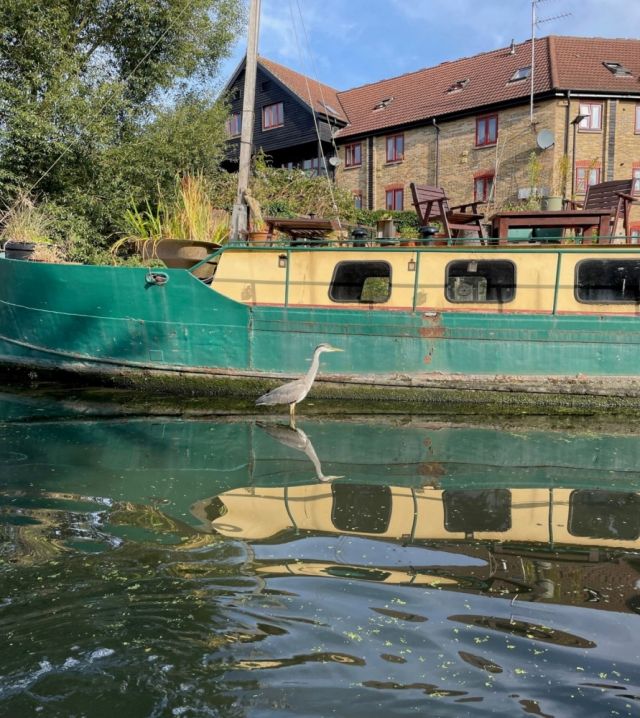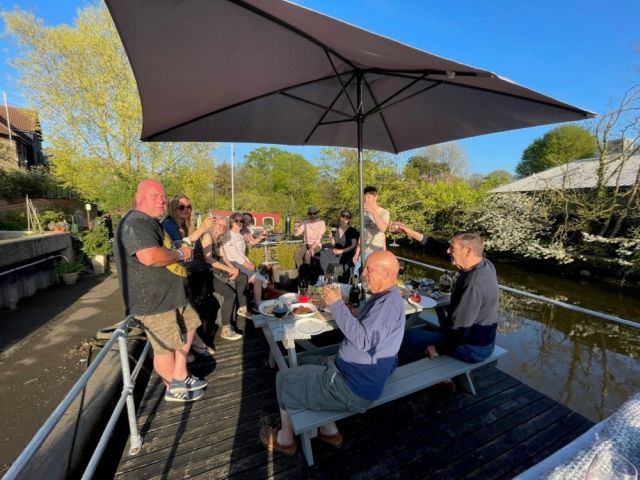- within Family and Matrimonial topic(s)
- with Senior Company Executives and HR
- with readers working within the Metals & Mining industries
When a group of boaters decided they no longer wanted to be dictated to by distant shareholders, they formed a co-op to take control of their moorings
Ham Wharf occupies a canalised stretch of water on the River Brent which marks the entrance to the Grand Union Canal. The wharf provides a vibrant natural habitat for all manner of flora and fauna.

The mooring has been home to a community of boaters for decades. In that time, a disparity developed between those who owned and managed the site, and those living there – something the residents recently decided to put right.
In 1992 – after paying a private landlord for a decade – a group of residents set up their own company to buy them out. "But not everyone who lived here could afford to contribute to that," said Ham Wharf tenant Sarah King. "It was a limited company with shares. Some residents had shares. Some didn't."
In 2002, those with shares started paying themselves dividends. But by this time, many of them had sold their moorings and boats – and moved off the site.
"It was an unequal situation, 57% of the shares were owned by people located off site – so the majority of voting rights were with those who didn't live here," Sarah explains. "And as a shareholder resident, you knew your vote didn't count. It was a futile situation."
"At the end of 2021, the director of the company sent out a letter offering to sell the 'off-site' shares. But you can't borrow money to buy shares. So, we came up with idea of setting up a co-op and convincing the owners to sell all their shares, which would enable us to borrow against the assets – freehold land and a long-term lease with the Canal and River Trust for 17 moorings."
With the help of the Gauthier Guerin of Catalyst Collective, funded by Co-operatives UK's Business Support for Co-ops programme https://www.uk.coop/support-your-co-op/business-support , Sarah and her fellow boaters were able to access the bespoke financial expertise they needed. This enabled them to develop and test a financial model that ultimately proved to a mortgage lender that they could service a loan and achieve their goals.
However, as Wrigleys' partner Emma Ridge explains, "the financing was unusual as whilst the borrowing entity was the newly formed co-operative, the assets were vested in the original company. We worked with the lender, Ecology Building Society to resolve the issues that this presented."
With a co-op established, a loan agreed and an offer in place, in April 2023 the sale was eventually completed, and Ham Wharf Mooring Co-op took ownership of the site.

The legal work is ongoing to transfer the lease to the co-operative and then wind up the original company. But the impact is already tangible for Ham Wharf's resident members of the co-op.
"The fact that things are equitable now is going to make a huge difference," said Sarah. "We can decide what we want to do. Before, we had people who were living offsite, some overseas, telling us how we should be living. That didn't make sense. We were always aware that the company could choose to increase the fees and add maintenance charges. So just being able to breathe and not have that fear makes a big difference."
"And then it's being able to decide how we use surplus funds. Obviously, the whole structure of the organisation has changed to one vote and one share per mooring – and that share always stays with mooring. So, if someone sells their boat on their allocated mooring, they can't walk away with the share."
For Sarah and her neighbours, the whole endeavour has been a unifying experience. "Going through the process brought people together and that was really amazing," she said.
"People who live on boats tend to be individual and make that lifestyle choice wanting to be a bit off grid, so it's great that they all hung in there. And that's why setting up a co-op was the right thing to do. We get to control our environment and we have stuck together for the best outcome."
The content of this article is intended to provide a general guide to the subject matter. Specialist advice should be sought about your specific circumstances.


